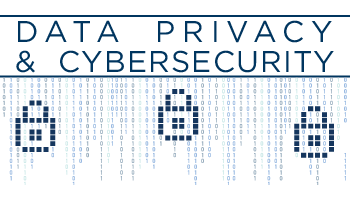Data Privacy & Cybersecurity
HBS works alongside businesses of all sizes and across industries to safeguard data, protect privacy, identify potential weaknesses, and reduce the likelihood of breaches.
Overview
As businesses continue to increase their use and storage of personal information and other data, it is more important than ever that they assess how they manage and control their data. HBS can assist with the preparation and implementation of proactive compliance plans not only to comply with relevant privacy laws and regulations but also to work towards a Strategic Privacy by Design plan for your business.
HBS can provide you with proactive strategies to reduce the likelihood of a security breach along with remedies to reduce your loss exposure should your data be compromised. We have a team of data privacy and cybersecurity attorneys throughout our offices to work with clients throughout the country.
Electronic transfer of data and “cloud computing” reach across geographical boundaries in the global marketplace. While most jurisdictions have some level of data privacy laws, these laws can vary widely from one state or country to another. This creates a maze of compliance and privacy risk issues.
HBS can identify the data privacy laws applicable to your business and develop a proactive plan to comply with these laws.
Specifically, HBS can assist with:
- National compliance programs and policies to address CCPA, Colorado Privacy Act, Virginia Consumer Data Privacy Act, HIPAA, NY SHIELD Act, PCI-DSS, COPPA, and GLBA
- International compliance programs and policies to address GDPR, PIPEDA, and the national data privacy laws of many other countries
- Website and mobile application privacy compliance
- vDPO services
- Data subject access and opposition rights
- Audits and data mapping
- Drafting and negotiation of all manner of technology contracts
It is no longer enough to reactively implement compliance measures when laws and regulations are passed. By implementing a Strategic Privacy by Design program in your business, we address privacy proactively by incorporating privacy requirements with your business strategy. At HBS we believe businesses can achieve their goals while maintaining the privacy of personal information.
If a data security breach has occurred the cost can be high, not just in terms of dollars but in terms of your integrity and brand. Proactive measures HBS can assist with include:
- Determining the personal information your business handles.
- Completing a proactive tabletop security assessment to find and address any gaps in your data security scheme.
- Assisting with data minimization strategies to reduce risk exposure.
- Prioritizing your privacy resources based on your risks.
- Instituting a security quality assessment and improvement plan.
- Developing a data breach incident response plan.
Podcast
Our PrivacyCafé podcast explores the complex and ever-changing landscape of data privacy, cybersecurity, and technology. PrivacyCafé unravels the complexity of data privacy laws, offers insights on cybersecurity, discusses fast-moving artificial intelligence technologies and their implications, and interviews top experts. The conversation is brought to you by the firm’s Data Privacy and Cybersecurity group. PrivacyCafé is essential listening for business owners, executives, board members, and anyone interested in the latest insights on these topics. PrivacyCafé is carried by the Business RadioX® network and can be found on all the major podcast apps.
Interested in speaking on our podcast? Connect with us at PrivacyCafé@hallboothsmith.com.
Blog
The Data Privacy & Cybersecurity Blog explores legal developments, trends, and business strategies around data protection, retention, privacy, reporting obligations, risk management, how to respond to hacking or security breaches, what to disclose and when, and other agenda-setting topics.
The blog features tips to help clients identify data protection concerns, assure that their businesses are in compliance, and develop proactive plans that reduce the risk of data security breaches. We also weigh in on breaking news such as cyberattacks, ransomware, phishing, viruses, and other matters.
Subscribe to our blog to stay updated with data privacy and cybersecurity trending topics.




